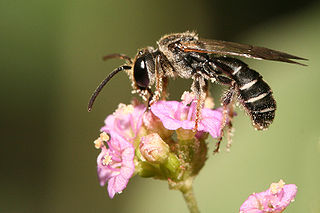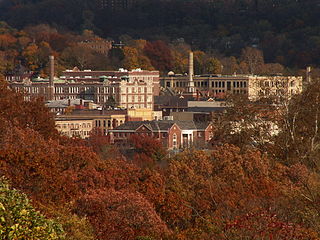Wilkinsburg Pollinator Garden Group

because life matters...

because life matters...
The Wilkinsburg Pollinator Garden Group appeared at a table at the newly-renovated/old Train Station building on April 15, 2023. This event was sponsored by the Wilkinsburg Community Development Corporation
Picture (courtesy of Clifton McGill):

The Wilkinsburg Pollinator Garden Group facilitated a tree installation at Boro Hall

Tree installed!
For more information: info@sustainablewilkinsburg.org
info@sustainablewilkinsburg.org

A pollinator is an animal that moves pollen from the male anther of a flower to the female stigma of a flower. This helps to bring about fertilization of the ovules in the flower by the male gametes from the pollen grains. There are many types of pollinators, including honeybees, humming birds, other insects and birds, and even humans!
The Wilkinsburg pollinators are a somewahat informal group dedicated to improving the environmental nature of Wilkinsburg Burough.
In addition to serving as beautification projects, creating pollinator gardens is truly an act of environmental responsibility. The gardens can be adapted to a variety of lots, soils and terrains. By using many types of flowering plants that are indigenous to the region, the gardens attract birds and a wide variety of insect pollinators whose activities benefit the area’s ecosystem.
Worldwide evidence shows that pollinator populations (for example, bees, wasps, beetles, butterflies, moths, hummingbirds) are declining, especially of concern for many food crops is the honeybee. Although many factors contribute to the decline, the destruction of and lack of habitat is certainly one, especially in urban settings. Pollinators are critical parts of the natural environment and are essential for the production of the fruits and vegetables that humans eat. Habitats may not be widely available in the setting of urban and suburban development. Consequently, creating those friendly environments will encourage the growth and sustainability of these important pollinator populations. In addition, educating young people about the significance of pollinators to ecological systems and the dependence of humans on them for their food is an important contribution to any society.
Wilkinsburg PA is a borough in Allegheny County adjacent to the city of Pittsburgh. Its current population is about 15,500. According to the 2010 Census, about 67% of the population are African American, 28% Caucasian, almost 2% Hispanic or Latino, and the remaining 5 % Asian, Native American or multi-racial. Poverty affects about 32% of those under age 18 and 12% of those 65 or over. Working with this community aligns with the Sierra Club’s Diversity, Equity, and Inclusion efforts. Approximately 200 Sierra Club members live in Wilkinsburg. There are 7236 properties in the borough, about 980 (13.5 percent) of the properties are vacant lots. Demolition of houses that were built at the beginning of the last century has cleared land for renewed use. Where there were blocks of vacant houses, demolition in the context of planning--almost one hundred houses during years 2016 and 2017-- has created new possibilities. The borough’s Comprehensive Plan, adopted by the borough council in 2011, made “safe, clean and green” a high-priority strategy. “Implementation of green and sustainable action strategies will require a collaborative effort among Borough officials, local and regional organizations, and citizen groups.” The removal of blighted property has encouraged residents to make gardens on the lots newly vacant and to speak up for keeping some land in their neighborhoods green and open for gardening, picnic tables and other informal use when new houses are built. The borough’s multi-use parks are Hunter and (to be reconstructed) Whitney. Playgrounds are Ferguson, Holmes Street and Park Avenue. Passive parks are Taylor, Rosa Parks, and (in litigation) Green Street. Lots used as neighborhood gardens can complement the named parks and keep pollinators alive throughout the borough.
In March of 2017, the Allegheny Group of the Sierra Club invited Sierra Club members living in Wilkinsburg to a meeting to discuss installing Pollinator Gardens in the community. About a dozen residents attended. A great deal of enthusiasm was generated. Several attendees indicated they had vacant lot areas and landscaping around a locally restored mansion that would be perfect for our project. In 2017 and 2018, the group received grants from the Sierra Club’s Huplits Wildlife Foundation for a total of about $16,000 which allowed us to support the creation of the gardens shown on this website. Thanks to Clif McGill, we published calendars and greeting cards showcasing the beautiful flowers and pollinators that visited our gardens.
Anyone is welcome to join our group and participate in our monthly online meetings. If you are interested, please send your name and email address to info@sustainablewilkinsburg.org so we can send you the online link.
1.Create an inviting habitat for bees, butterflies, hummingbirds and other wildlife in an urban setting.
2.Transform vacant lots into green spaces where people can rest, relax, and enjoy observing nature in action.
3.Educate residents, especially young people, about the importance of pollinators in ecosystems.
4.Provide opportunities for residents to identify specific plants that attract pollinators so they can add those plants to their own gardens.
Wilkinsburg is located in and around a beautiful valley.
The area is ecologically part of the Appalachian Eastern Woodlands.
Here is a picture from autumn 2014, from the Wikipedia article on Wilkinsburg:
